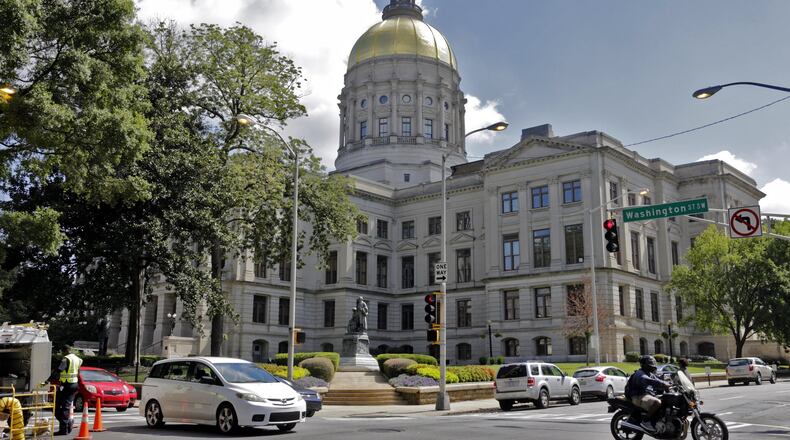Democratic Gwinnett legislators who represent diverse districts are calling for a fair and transparent redistricting process as Republicans gear up to redraw congressional and legislative districts during a special session.
Members of Georgia’s Legislative Black Caucus and Fair Count, a nonprofit started by former gubernatorial candidate Stacey Abrams, discussed how redistricting could shake out for Gwinnett County during a town hall Thursday evening at the Gwinnett Justice and Administration Center.
State legislators are required to redraw congressional and state districts to ensure they contain equal populations based on U.S. census figures collected every 10 years. The release of updated census numbers sets off a heavily partisan process undertaken by the majority party to redraw districts for maximum reward.
“We want transparency, definitely want fairness and we want to make sure that our diversity is represented,” said state Sen. Nikki Merritt, D-Grayson. “People want (to make) sure that the maps are fair... and they have a representative that’s going to hear them out.”
The congressional district encompassing Forsyth and Gwinnett counties that U.S. Rep. Carolyn Bourdeaux flipped from Republican to Democrat last year will need to shrink significantly during redistricting. Her district currently has 94,000 residents more than the 765,000-resident threshold that each congressional district will hold once redrawn.
When asked about the upcoming redistricting process Thursday, Bourdeaux told the Gwinnett County Democratic Party, “The Republicans are going to have to find some place to put those people. Good luck. We’re gearing up for a huge fight on that front.”
According to U.S. Census figures released earlier this month, Gwinnett’s overall population has grown by 18.8% since 2010. Its Asian population grew by 58%, while its Hispanic/Latino population grew by 43% and its Black population by 38%.
Areas with a high concentration of people of color make them prime spots for legislators to carve up, said Marijke Kylstra, a redistricting coordinator for Fair Count.
Gerrymandering could take place by “packing” supporters for a particular party or candidate into a single district or “cracking” voting blocs into multiple districts to water down votes for the opposing party, Kylstra said.
“Our history shows us that those who’ve been in charge have been suppressive, restrictive and purposely did not mean to have equitable distribution of votes representing communities but to pack and crack in the community,” said Penny Poole, president of the Gwinnett County NAACP.
After redistricting, some constituents could receive new representation that fails to listen to their concerns, Merritt said. Representatives need to be reflective of the people in their districts, she said.
Steve Toggerson, a Lawrenceville resident who attended the town hall, said she hopes redistricting plays out fairly above all else. She said she plans to share what she learned with others.
State Rep. Donna McLeod, D-Lawrenceville, said she’s more focused on informing the public of the importance of the process right now instead of worrying about how her district could change.
State Rep. Jasmine Clark, D-Lilburn, asked the moderators how her constituents could get involved. They encouraged residents to “be loud” in demanding transparency, submit written testimonies to the Legislature and draw maps to show where their communities shouldn’t be split.
AJC staff writer Greg Bluestein contributed to this report.
About the Author
The Latest
Featured



